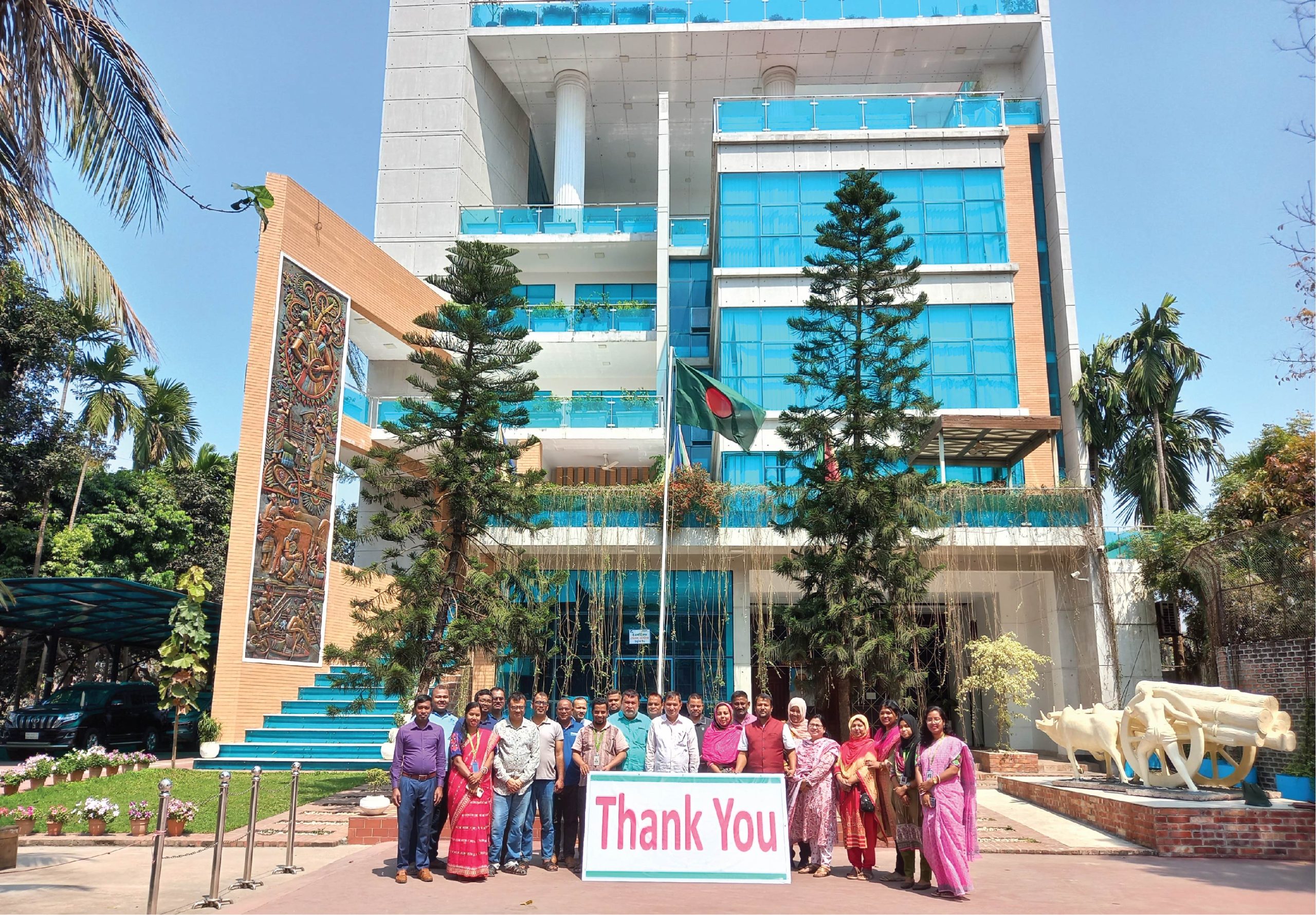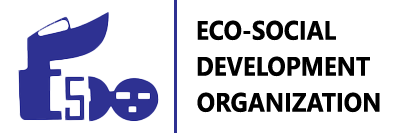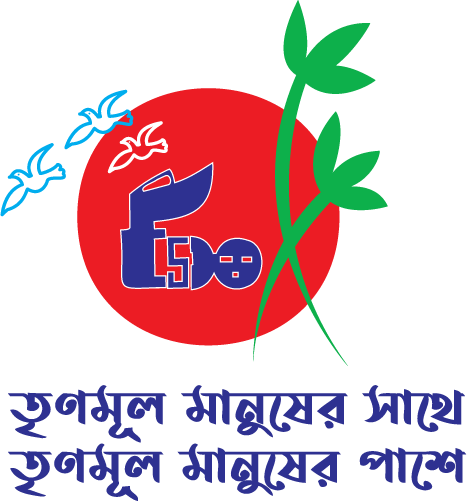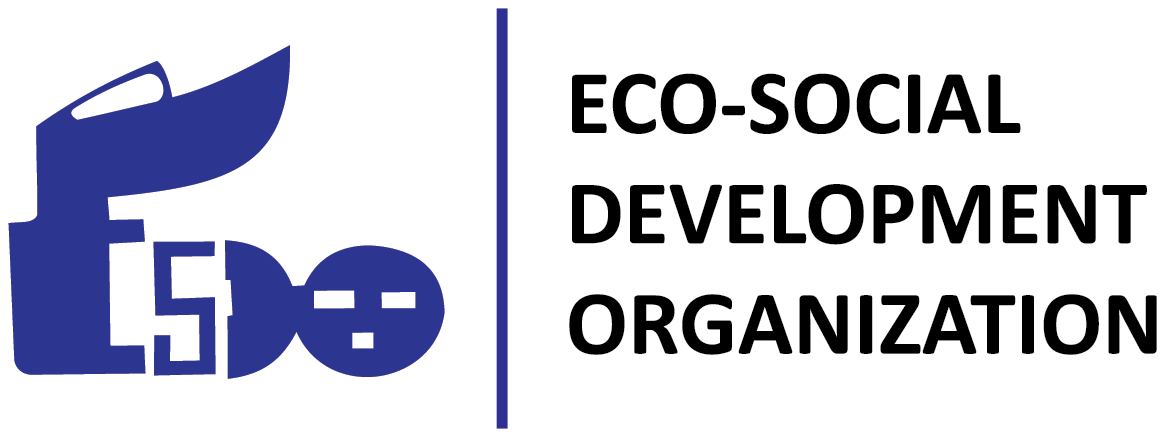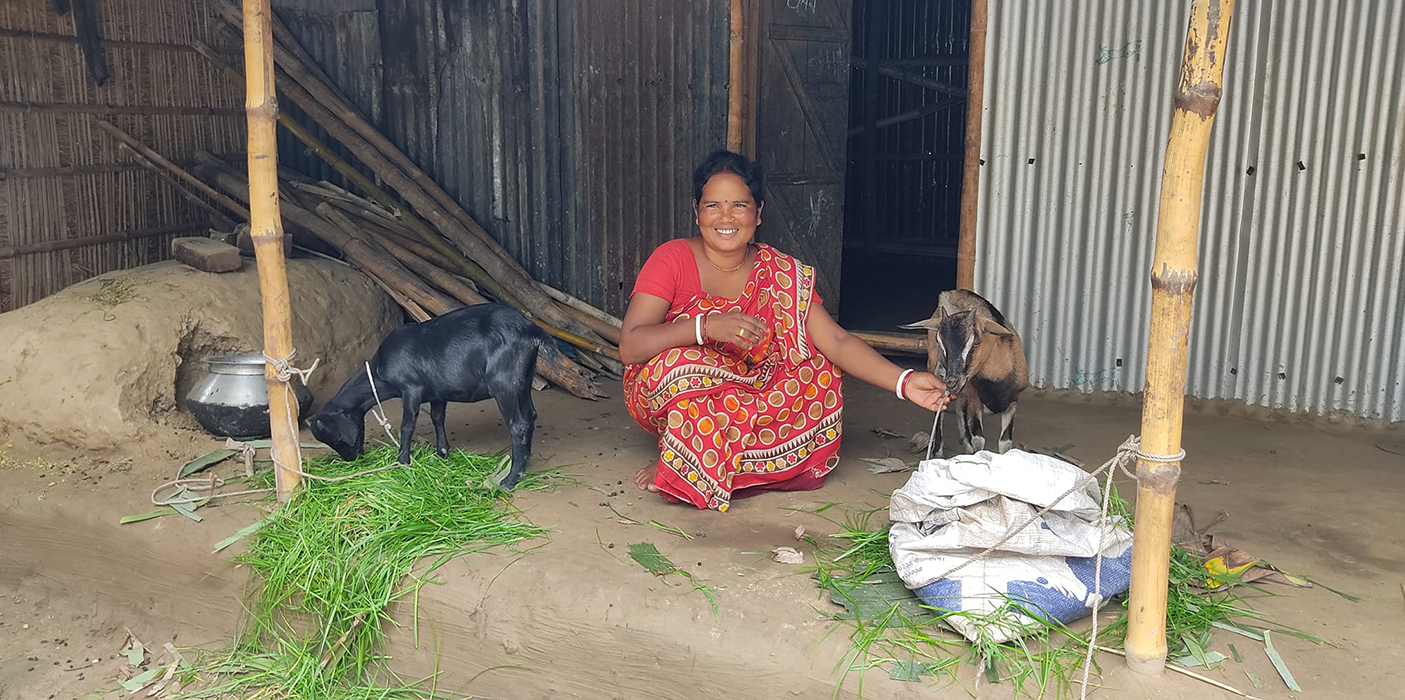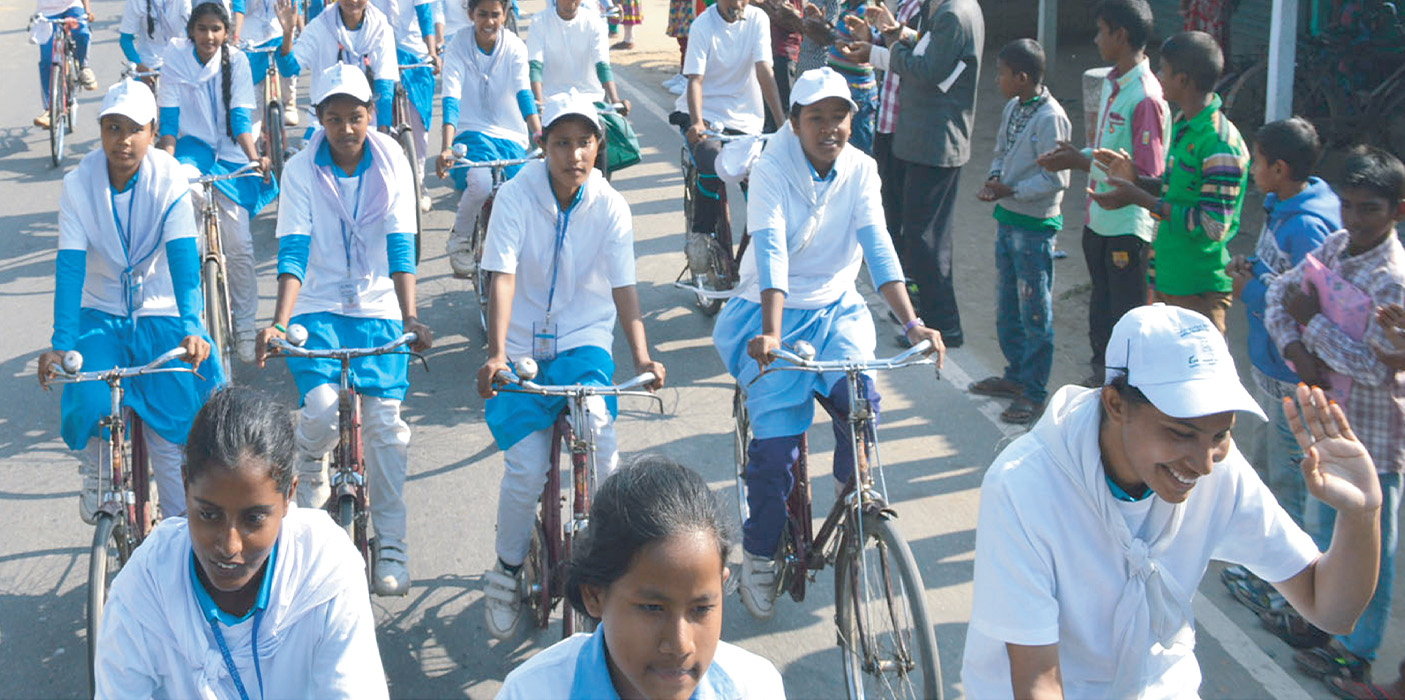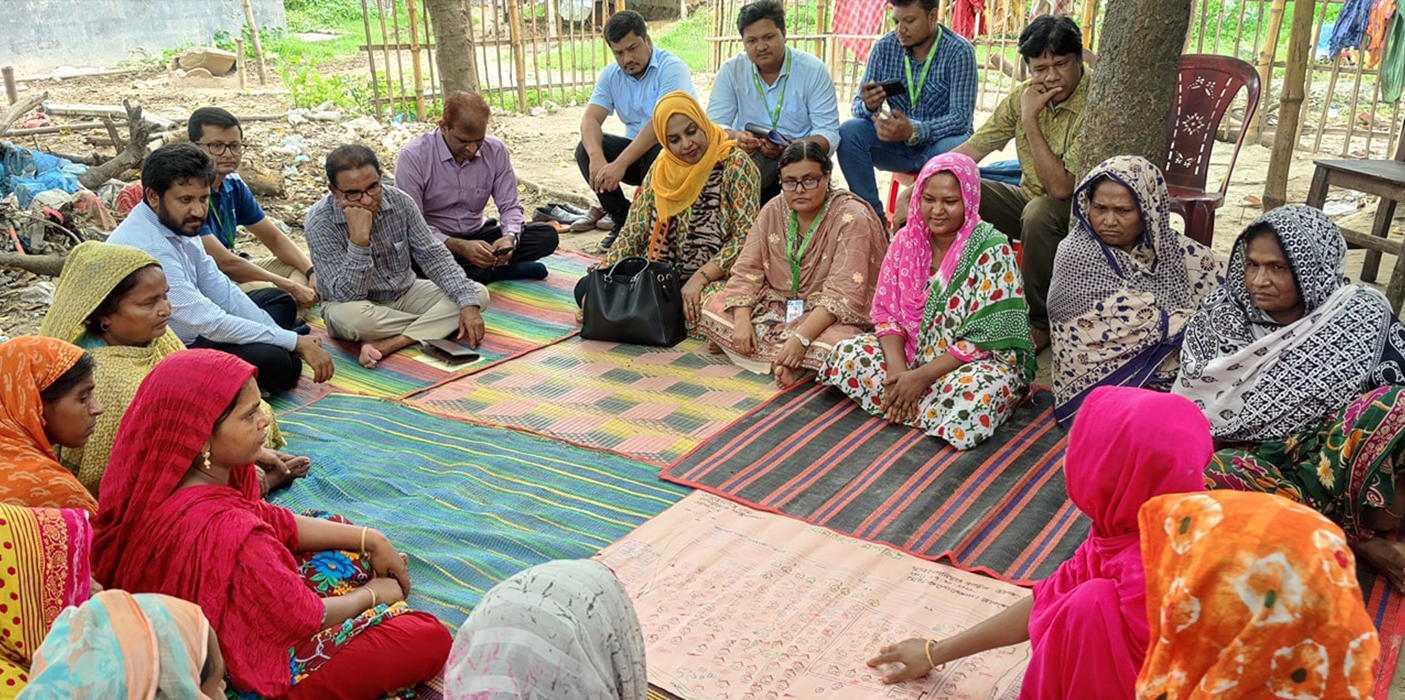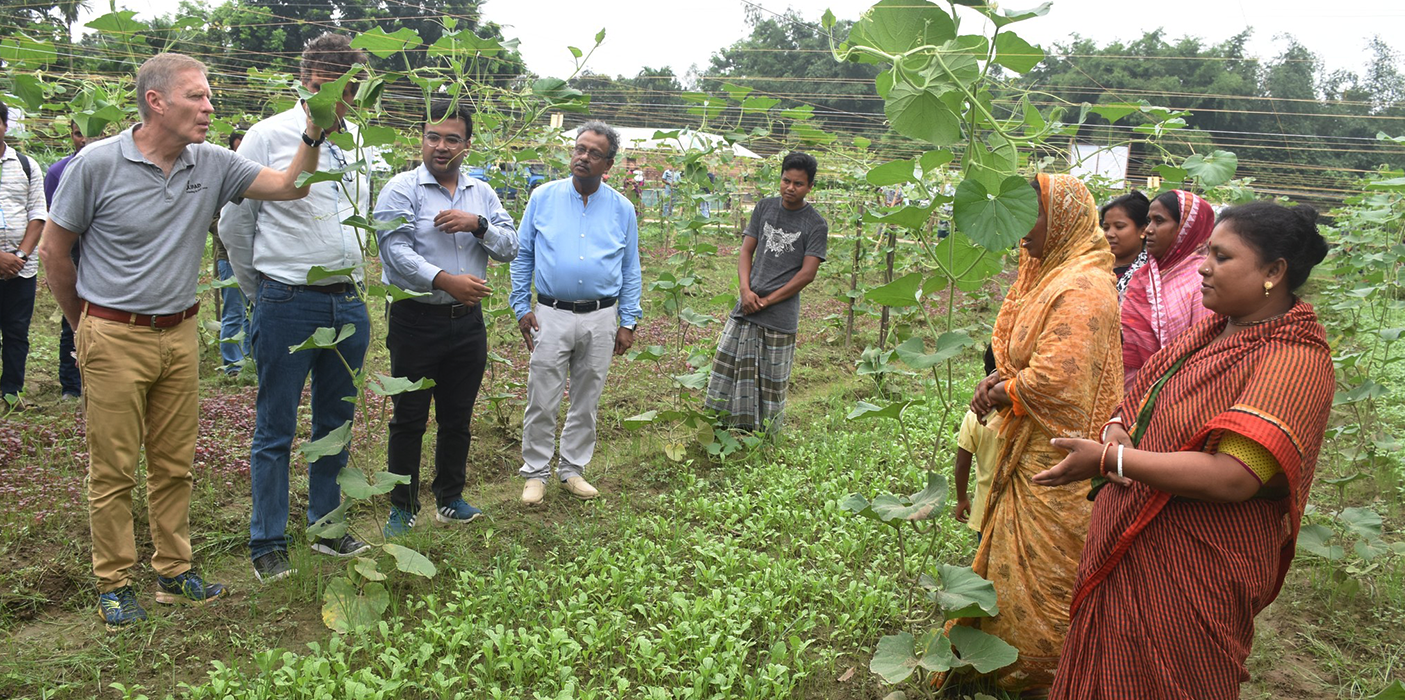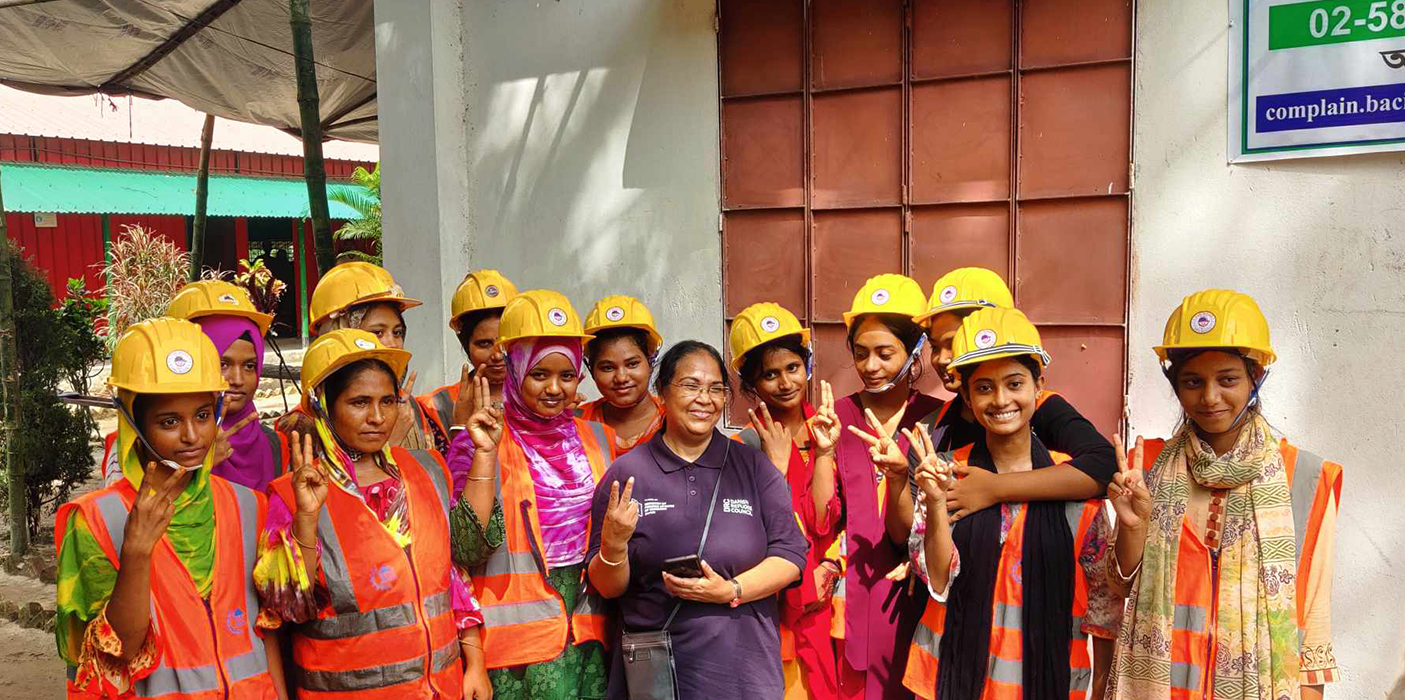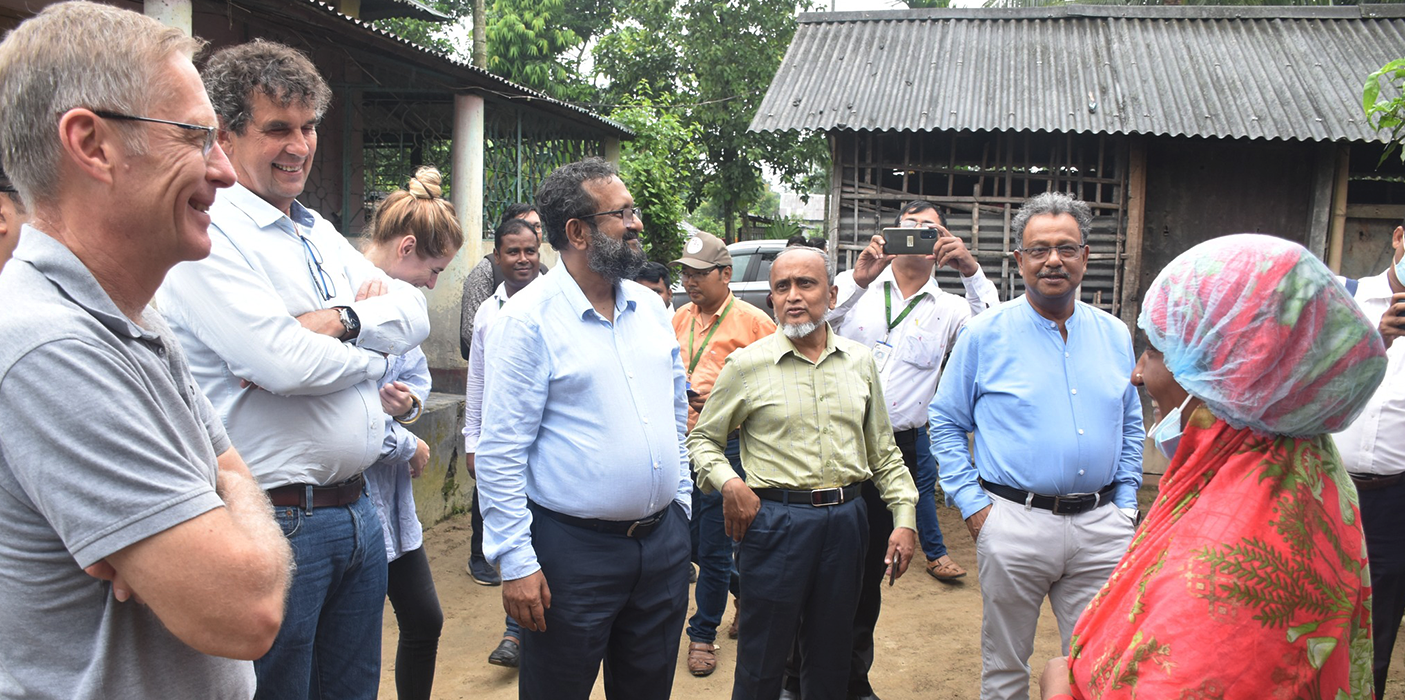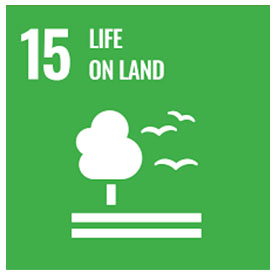We seek an equitable society free from all discriminations.
Who We Are
What We Do
Where We Work
Vision & Mission
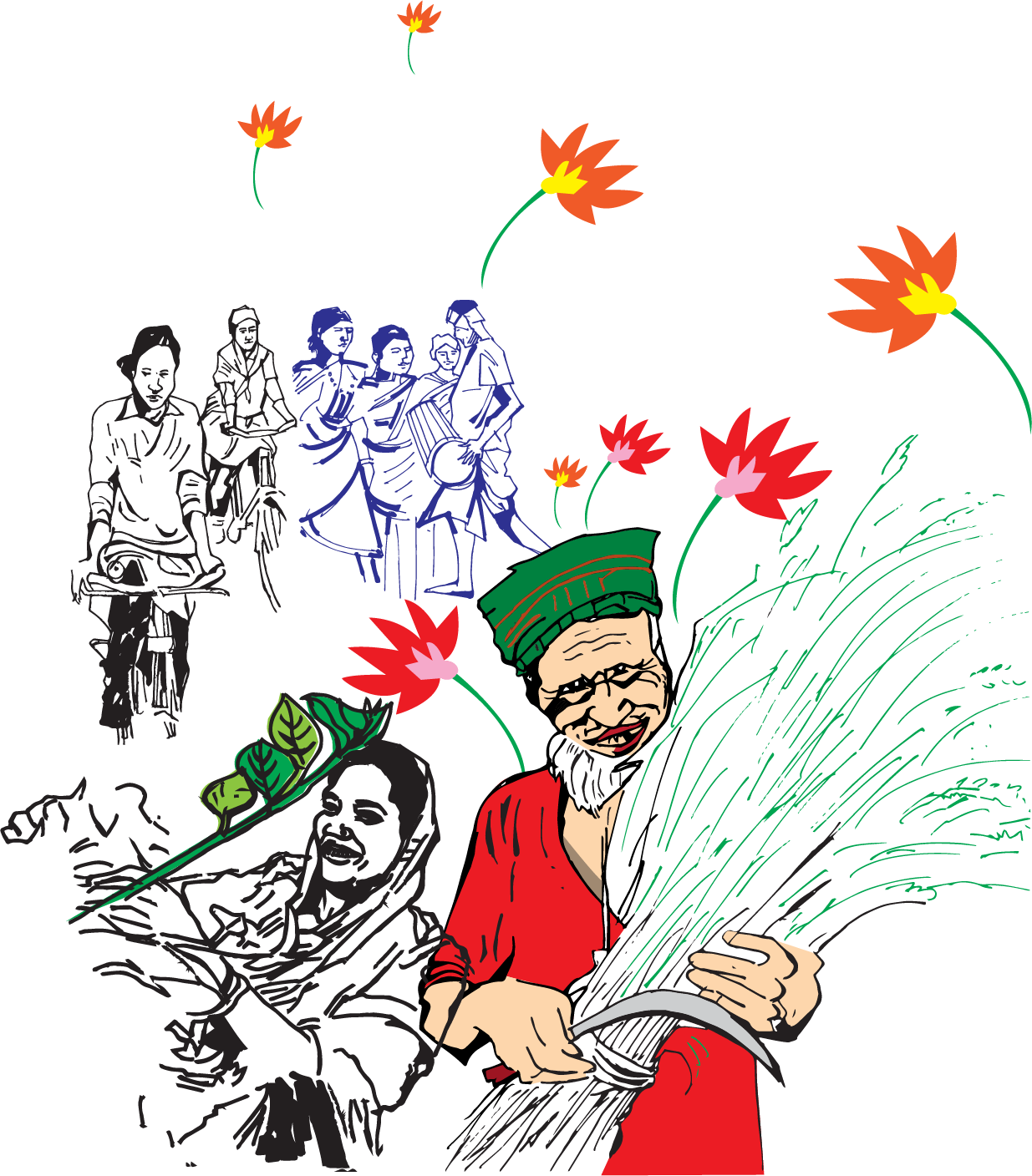
The Journey of ESDO: From a Village Response to a National Movement
It all began in 1988, when the people of northwestern Bangladesh were devastated by a catastrophic flood. Amid the destruction, a small group of committed social workers and community leaders came together with one vision: to stand beside the poor, the vulnerable, and the forgotten. This humble initiative was the seed from which the Eco-Social Development Organization (ESDO) was born.
In those early days, ESDO was not a large institution with offices or big projects. It was a movement of compassion—neighbors helping neighbors, volunteers sharing food, shelter, and hope. The focus was simple yet profound: empower the underprivileged and build resilience against disasters.
As years passed, the dream grew. The small initiative gradually turned into a comprehensive development organization. ESDO realized that empowerment meant more than relief—it meant building skills, creating livelihoods, ensuring food and nutrition, and giving women and children the power to claim their rights.
ESDO’s philosophy was clear: development must be community-led and people-centered. Villages became partners, not just beneficiaries. Women found their voices in cooperatives. Children discovered education as a path to dignity. Farmers adopted climate-smart techniques to withstand droughts and floods.
From the dusty lanes of Thakurgaon to the farthest corners of Bangladesh, ESDO kept moving with the tides of change. Microfinance programs gave families the capital to start small businesses. Healthcare and nutrition projects gave mothers and children the chance to live healthier lives. Youth and adolescents discovered hope in training centers and skill-building workshops.
What started as a local response to a flood became a national model of resilience. Today, after more than 37 years of service, ESDO is present in 422 upazilas of 56 districts, reaching over 15 million people.
ESDO’s journey is not just an organizational story—it is the story of millions of lives transformed, of women breaking barriers, of youth shaping futures, and of communities standing tall against poverty, hunger, and climate challenges.
And yet, the spirit remains the same as in 1988: to serve the poor with dignity, to empower the powerless, and to ensure that no one is left behind.
Eco-Social Development Organization (ESDO) continuous its mended for the holistic development of rural populations in the areas of livelihood, skill development, health, education, water and sanitation, nutrition, mother and child health care services, kitchen gardening, growth monitoring, immunizations, arsenic mitigation and the developing needs of marginalized people of Bangladesh from its inception 1988. At the same time, ESDO has been continuing microcredit, social development, food security, disaster management, agricultural development, livestock, fisheries, water resources management, hazardous child labor reduction, counter-trafficking intervention, human rights, adult education, child education, skill development activities for ensuring equitable society free from poverty in ESDOs working area.
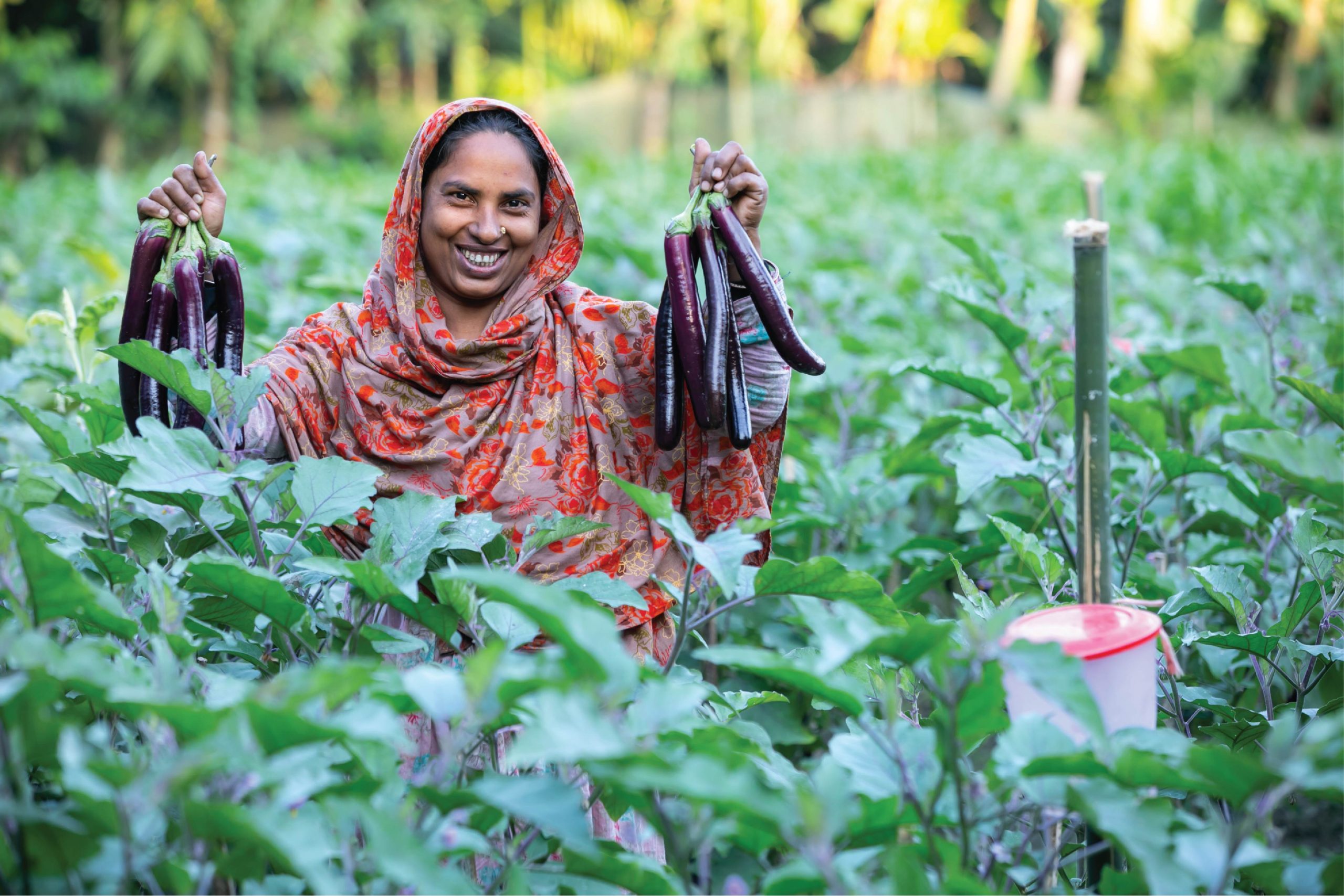
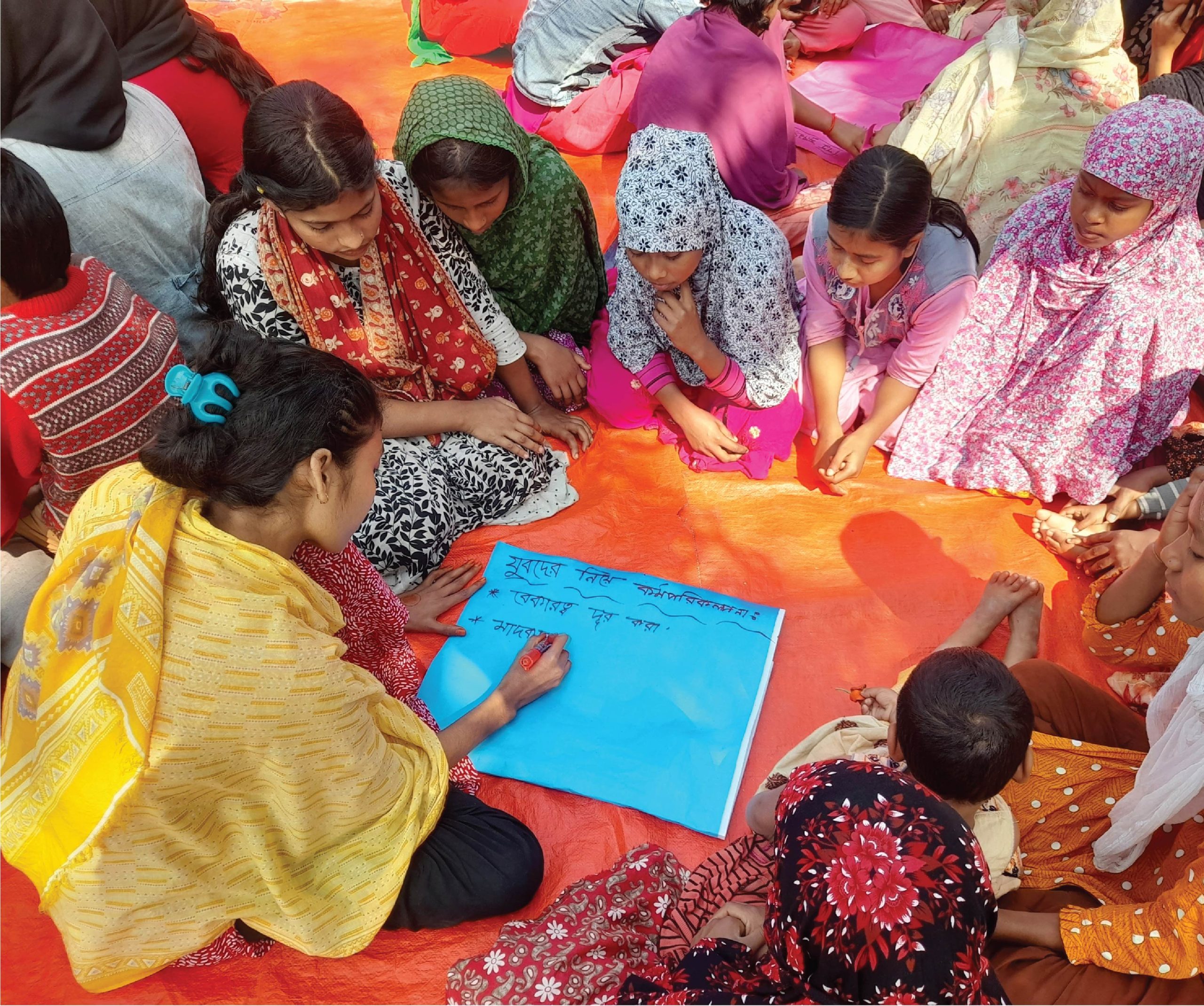
ESDO managed the mentioned programs in 4032 Unions, 162 Municipality, 422 Upazila under 56 districts & 7 City Corporation, 8 Division of Bangladesh, directly reaching more than 15 million poor and vulnerable people. Different need-based programs are aimed to enhancing the capabilities of deprived people in terms of social development, disaster facing, food security, agriculture, gender, nutrition, microfinance, health, environment, rights and governance, education and human development, and with empowering them to solve the problems that affect their lives and to cooperate to resisting oppression and exploitation. The undertaking of such self-initiated and autonomous actions is an important achievement in a context where the deprived people are dependent for their livelihood and social security.
Our mission is to reduce income and human poverty in our working areas through holistic, integrated development programs suited to the specific needs of the poor and marginalized communities. We adopt a dual approach of service delivery and a rights-based framework, with a focus on income generation, enhanced education, nutrition and health, promotion of human rights, and establishment of good governance practices. Gender equity and environmental protection are integrated into each of our programs as priorities across the board. Guided by the core belief in equity, we engage in active promotion of human rights, dignity, and gender equality that empowers people through social, economic, political, and human capacity building. Women and children remain at the heart of all our initiatives. We believe that through continuous improvement of our organizational capabilities, we can have more quality services. First among these, our commitment is to outreach and support to ultra-poor people—a defined main manifesto and leading mission with determination.
